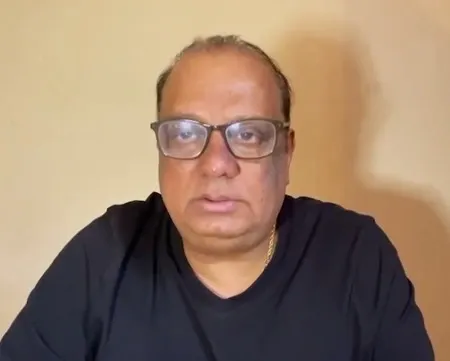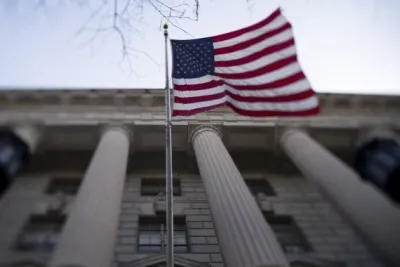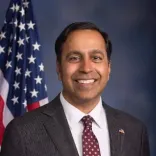Did Shiv Sena Condemn Imran Masood Over Waqf Board Act Remarks?

Synopsis
Key Takeaways
- Shiv Sena's Krishna Hegde rebukes Imran Masood's divisive remarks.
- Public sentiment strongly favors the BJP and NDA's leadership.
- Concerns about the Waqf Board Act highlight ongoing political tensions.
- Legal consequences are called for in personal disputes involving public figures.
- Minority rights and governance remain hotly debated topics in India.
Mumbai, July 8 (NationPress) - Shiv Sena leader Krishna Hegde vehemently criticized Congress MP Imran Masood for his alleged “provocative” statement that suggested the Congress would dismantle the Waqf Board Act within an hour if they regained power at the Centre.
Hegde dismissed Masood's comments as mere “absurd statements” that lack seriousness, emphasizing that the Indian populace has already rejected such divisive politics.
In a conversation with IANS, Krishna Hegde remarked, “Imran Masood frequently makes ridiculous statements, but the citizens of this nation have utterly disavowed him.”
According to Hegde, “Today, the public rallies behind the BJP and the NDA. There is unwavering trust in the leadership of Prime Minister Narendra Modi, and developmental initiatives are progressing in every direction. What Imran Masood utters holds no significance, as the populace has already taken their stance. He can voice any opinion, but the country’s ground reality is evident and quite distinct.”
The sharp retort from the Shiv Sena leader came after Masood's statement gained traction, igniting intense political discussions.
Hegde also addressed another controversy involving BJP MP Nishikant Dubey, who reacted to prior comments directed at Maharashtra Navnirman Sena (MNS) chief Raj Thackeray by stating, “If Raj Thackeray possesses such courage, he should come to Bihar. He will be beaten to death.”
When asked about the personal dispute between Dubey and Thackeray, Hegde refrained from escalating the issue, stating, “The conflict between Raj Thackeray and Nishikant Dubey is their personal affair. I will not comment further. It is up to both leaders to find a resolution.”
Krishna Hegde also shared his thoughts on the MNS protest at Mira Road, which resulted in several party workers being detained.
“Everyone has the constitutional right to conduct business and voice their opinions. However, the protest by MNS workers on the streets without police authorization was inappropriate. Hence, the police acted by detaining them,” he noted.
Calling for calm, he added, “I urge all traders and MNS members to uphold peace. Marathi is our state language, deserving of respect and learning from everyone. Nevertheless, taking the law into one's own hands, engaging in violence, or causing harm is entirely unacceptable and must be denounced. The police are equipped to handle the situation, and offenders will face consequences.”
Furthermore, Hegde responded to an incident involving Raheel Sheikh, son of MNS leader Javed Shaikh, who faced allegations of verbally abusing and threatening a woman social media influencer.
“Raheel Sheikh's conduct—verbally assaulting a woman while intoxicated and shirtless—was unequivocally wrong, and I strongly condemn it,” Hegde stated.
“The Amboli Police have lodged an FIR, and he should be penalized according to the law. Concurrently, the woman entering his vehicle and recording a video also infringes on privacy, which is wrong as well. It takes two to tango. The complete truth must emerge from a thorough investigation. Given her status as a social media influencer, whether her actions were intentional or otherwise should also be evaluated.”
Hegde additionally commented on the heated exchange between AIMIM chief Asaduddin Owaisi and Union Minister for Minority Affairs Kiren Rijiju. Owaisi had labeled minority rights as “rights, not charity” and accused Rijiju of behaving like a monarch, asserting that Indian Muslims were treated as hostages.
Countering Owaisi, Hegde stated, “Minorities are safest in India and enjoy numerous benefits under the PM Modi government, as Kiren Rijiju pointed out. The previous Congress government failed to accomplish such measures for minorities. Muslim women have gained security and respect through the abolition of Triple Talaq. The amendment to the Waqf Board Act will enhance transparency over vast lands, delivering direct advantages to ordinary Muslims. This represents a significant stride toward curbing corruption and ensuring justice.”










